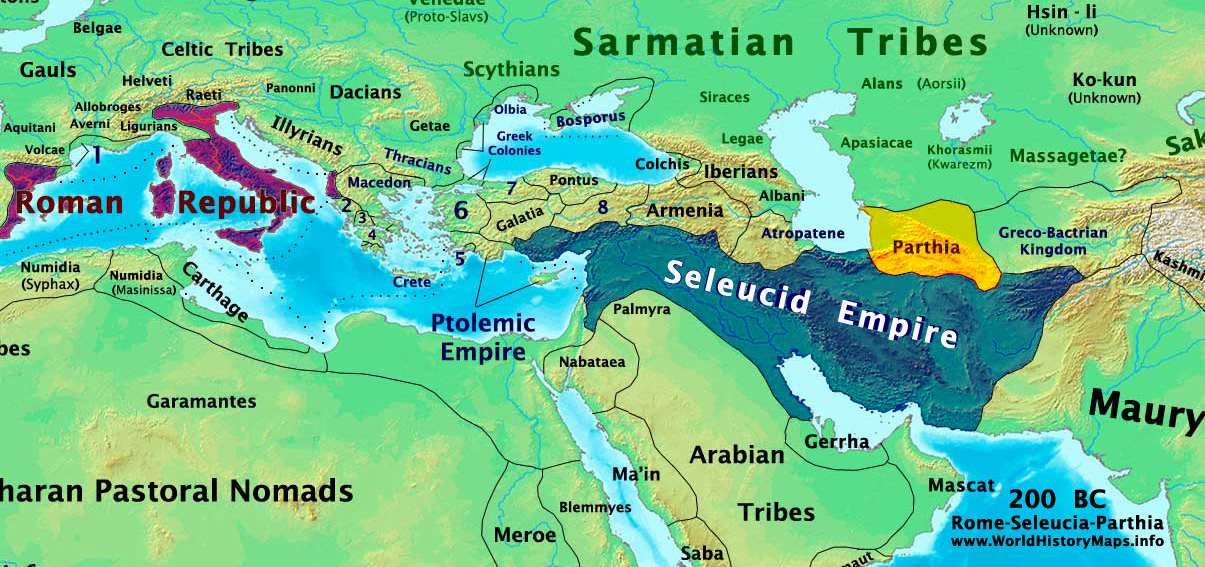https://www.worldhistorymaps.info/wp-content/uploads/2021/03/rome-seleucia-parthia_200bc.jpg
The Seleucid Empire (/sɪˈljuːsɪd/; Ancient Greek: Βασιλεία τῶν Σελευκιδῶν, Basileía tōn Seleukidōn) was a Hellenistic state in Western Asia that existed from 312 BC to 63 BC. It was founded by Seleucus I Nicator following the division of the Macedonian Empire established by Alexander the Great. After receiving Babylonia in 321 BC, Seleucus expanded his dominions to include much of Alexander’s Near Eastern territories, establishing a dynasty that would rule for over two centuries. At its height, the empire spanned Anatolia, Persia, the Levant, Mesopotamia, and what are now Kuwait, Afghanistan, and parts of Turkmenistan.
The Seleucid Empire was a major center of Hellenistic culture, privileging Greek customs and language while generally tolerating the wide variety of local traditions. An urban Greek elite formed the dominant political class, and was reinforced by steady immigration from Greece. The empire’s western territories were repeatedly contested with Ptolemaic Egypt, a rival Hellenistic state. To the east, conflict with Chandragupta of the Maurya Empire in 305 BC led to the cession of vast territory west of the Indus and a political alliance.
In the early second century BC, Antiochus III the Great attempted to project Seleucid power and authority into Hellenistic Greece, but his attempts were thwarted by the nascent Roman Republic and its Greek allies; the Seleucids were forced to pay costly war reparations and relinquish territorial claims west of the Taurus Mountains, marking the gradual decline of their empire.
Mithridates I of Parthia conquered much of the remaining eastern lands of the Seleucid Empire in the mid-second century BC, while the independent Greco-Bactrian Kingdom continued to flourish in the northeast. The Seleucid kings were thereafter reduced to a rump state in Syria, until their conquest by Tigranes the Great of Armenia in 83 BC and ultimate overthrow by the Roman general Pompey in 63 BC.
Source: Wikipedia

